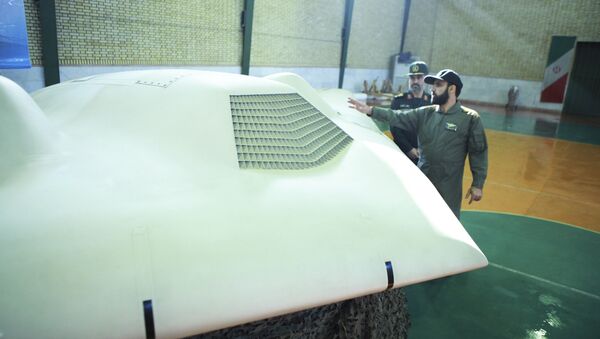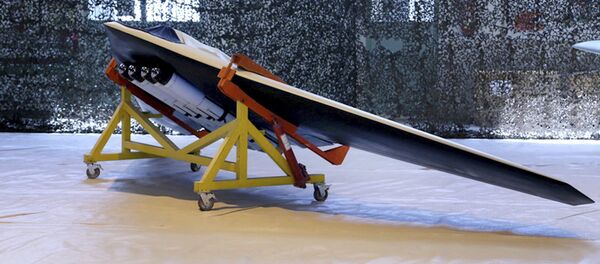"It's a copy of a similar system that fell in Iran," Israeli Brig. Gen. Tomer Bar told Defense News Monday. "They more or less duplicated it."
The IDF reportedly launched yet another series of missile attacks on Syrian soil February 7. A few days later, the Israeli Defense Forces said they had downed an Iranian drone and carried out attacks on Iranian targets in Syria. Syrian forces defended their territory by downing an Israeli F-16, forcing the pilots to eject. The Kremlin has called on both sides to de-escalate the situation "in favor of avoiding any steps that could lead to a new round of dangerous confrontations in the region."
When Israel said that an Iranian drone had been intercepted over Israeli airspace, Tehran denied that any of its military equipment was even in the area.
"Reports of downing an Iranian drone flying over Israel and also Iran's involvement in attacking an Israeli jet are so ridiculous… Iran only provides military advice to Syria," Iran Foreign Ministry spokesman Bahram Qasemi said February 10.
According to an expert at the Fisher Brothers Institute for Air and Space Strategic Studies, it certainly would have been within Tehran's capability to have a Sentinel-like unmanned aerial vehicle operating in the region.
"There are two copies that Iran made out of the [Sentinel]. One is Shahed 171, and this is supposed to be jet powered and for reconnaissance missions. Then there is the other variant of this vehicle — similar in design to RQ-170, with a piston engine and a propeller — named Saeqeh. This variant was shown in 2016 armed with four laser-guided munitions," said Tal Inbar, director of UAV studies at the institute.
The drone identified by the IAF general was said to be a Shahed 171 aircraft.




